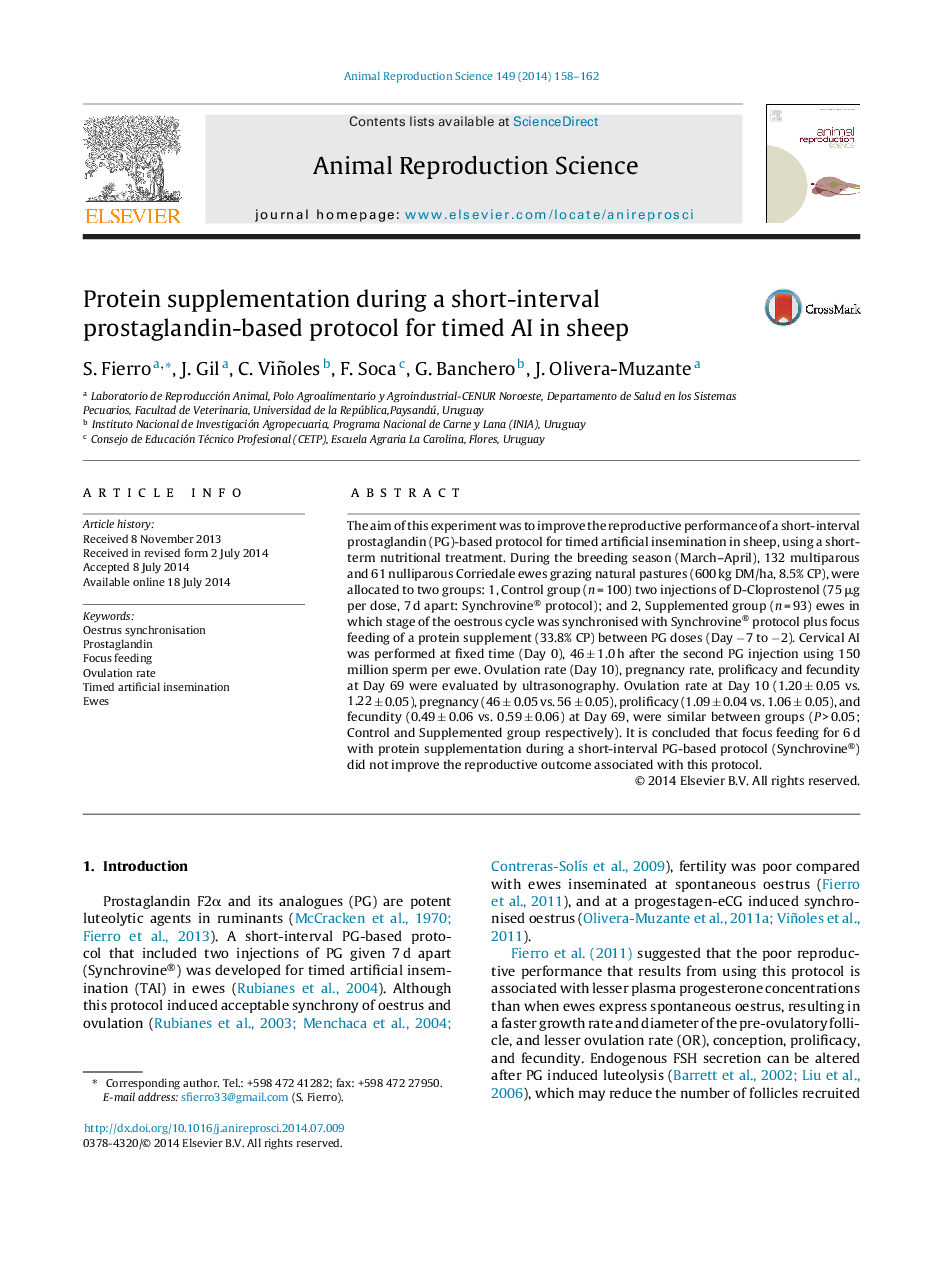| Article ID | Journal | Published Year | Pages | File Type |
|---|---|---|---|---|
| 8404545 | Animal Reproduction Science | 2014 | 5 Pages |
Abstract
The aim of this experiment was to improve the reproductive performance of a short-interval prostaglandin (PG)-based protocol for timed artificial insemination in sheep, using a short-term nutritional treatment. During the breeding season (March-April), 132 multiparous and 61 nulliparous Corriedale ewes grazing natural pastures (600 kg DM/ha, 8.5% CP), were allocated to two groups: 1, Control group (n = 100) two injections of D-Cloprostenol (75 μg per dose, 7 d apart: Synchrovine® protocol); and 2, Supplemented group (n = 93) ewes in which stage of the oestrous cycle was synchronised with Synchrovine® protocol plus focus feeding of a protein supplement (33.8% CP) between PG doses (Day â7 to â2). Cervical AI was performed at fixed time (Day 0), 46 ± 1.0 h after the second PG injection using 150 million sperm per ewe. Ovulation rate (Day 10), pregnancy rate, prolificacy and fecundity at Day 69 were evaluated by ultrasonography. Ovulation rate at Day 10 (1.20 ± 0.05 vs. 1.22 ± 0.05), pregnancy (46 ± 0.05 vs. 56 ± 0.05), prolificacy (1.09 ± 0.04 vs. 1.06 ± 0.05), and fecundity (0.49 ± 0.06 vs. 0.59 ± 0.06) at Day 69, were similar between groups (P > 0.05; Control and Supplemented group respectively). It is concluded that focus feeding for 6 d with protein supplementation during a short-interval PG-based protocol (Synchrovine®) did not improve the reproductive outcome associated with this protocol.
Related Topics
Life Sciences
Agricultural and Biological Sciences
Animal Science and Zoology
Authors
S. Fierro, J. Gil, C. Viñoles, F. Soca, G. Banchero, J. Olivera-Muzante,
